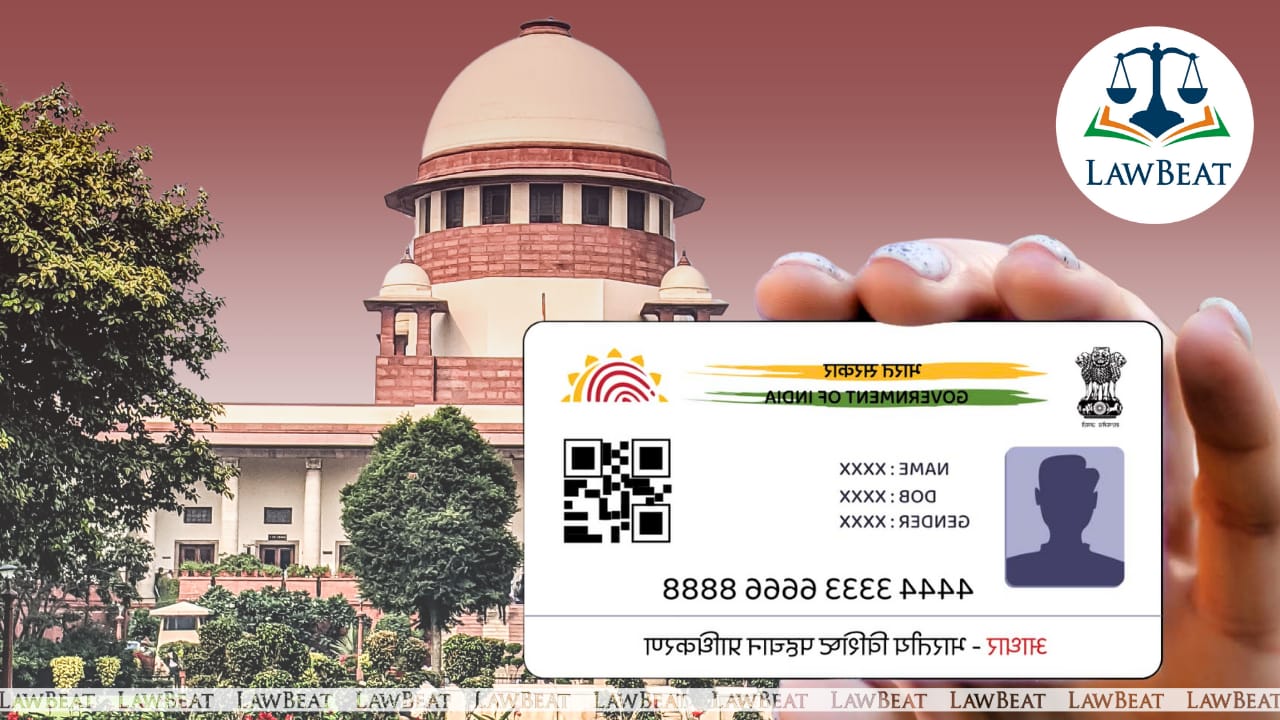Aadhaar card not an authoritative proof of date of birth: SC

Court upheld the Motor Accident Claims Tribunal's decision to rely on the school leaving certificate as proof of date of birth for calculating compensation in a motor accident claim case
The Supreme Court on October 24, 2024 held that an Aadhaar card does not serve as conclusive or authoritative proof of date of birth, affirming a Motor Accident Claims Tribunal order that determined the deceased's age based on a school leaving certificate for compensation calculation.
A bench comprising Justices Sanjay Karol and Ujjal Bhuyan highlighted that the Unique Identification Authority of India (UIDAI), through a 2023 circular referencing a December 20, 2018, Office Memorandum from the Ministry of Electronics and Information Technology, clarified that while an Aadhaar card may be used to establish identity, it is not per se proof of date of birth.
Dealing with an appeal filed by Saroj and others, the court examined whether, in instances where discrepancies arise between two documents concerning date of birth—like in the present case, a School Leaving Certificate and an Aadhaar card—which of the two is to be taken as authoritative.
"It has to be noted at the outset that a School Leaving Certificate has been accorded statutory recognition," the court said, citing Sub-section (2) of Section 94 of the Juvenile Justice (Care and Protection of Children) Act, 2015.
The bench also noted that the question of whether an Aadhaar card constitutes sufficient proof of a person’s age has previously been considered by various High Courts, albeit in relation to different statutory contexts.
Court also referred to the Constitution Bench judgment in K S Puttaswamy Vs Union of India (2019) that the aim of the Aadhaar card was to serve as proof of identity which will be unique in nature.
Citing some of the High Court's judgments, the bench pointed out that in Manoj Kumar Yadav Vs State of MP (2023), a Single Judge of the Madhya Pradesh High Court held that when it comes to establishing the age, on a plea of juvenility the age mentioned in the Aadhar Card could not be taken as a conclusive proof in view of Section 94 of the JJ Act. Similar observations were made in Shahrukh Khan Vs State of MP (2023) that if the genuineness of the School Leaving Certificate is not under challenge, the said document has to be given due primacy.
The Punjab & Haryana High Court, in cases under the Prohibition of Child Marriage Act, 2006, such as Navdeep Singh & Anr v. State of Punjab & Ors (2021), ruled that Aadhaar cards do not constitute “firm proof of age.” Comparable observations were made in Noor Nadia & Anr v. State of Punjab & Ors (2021) and Muskan v. State of Punjab (2021), among others. The Supreme Court noted that similar views were also expressed by the Allahabad, Himachal Pradesh, and Kerala High Courts.
Recently, the Gujarat High Court, in Gopalbhai Naranbhai Vaghela v. Union of India & Anr (2024), directed the petitioner’s pension to be issued based on the date of birth in the School Leaving Certificate, disregarding the discrepancy in the Aadhaar card. In Shabana v. NCT of Delhi (2024), a Division Bench of the Delhi High Court, in a habeas corpus case, recorded UIDAI’s statement clarifying that an Aadhaar card should not be considered proof of date of birth.
Allowing the appeal, the bench said, "That being the position, as it stands with respect to the determination of age, we have no hesitation in accepting the contention of the claimant-appellants, based on the School Leaving Certificate. Thus, we find no error in the MACT’s determination of age based on the School Leaving Certificate".
As per the facts of the case one Silak Ram tragically died in a motorcycle accident on August 4, 2015, in Rohtak. In 2017, following a petition filed by his wife and children, the Motor Accident Claims Tribunal (MACT) awarded a compensation of Rs 19,35,400 with an interest rate of 7.5% from the date of the claim petition.
However, upon appeal in 2023, the High Court reduced the compensation to Rs 9,22,336, basing the calculation on the age recorded in the deceased’s Aadhaar card.
The deceased’s Aadhaar card listed his date of birth as January 1, 1969, while the appellants cited his School Leaving Certificate, which recorded his date of birth as October 7, 1970.
On this aspect, the apex court agreed with the view of MACT relying upon the school leaving certificate.
On another aspect, i.e., the interest awarded, the court found no reason was recorded by the High Court in the reduction of the rate of interest from 7.5% to 6%.
"The High Courts cannot lose sight of the fact that compensation received by way of claims filed before MACT is either born out of injury or death of the claimant or family member of the claimants and so, the amount awarded must do justice to them. It necessarily has to be just and reasonable. In that view of the matter, we find it fit to enhance the rate of interest to 8% to be paid from the date of filing of the claim petition," the bench said.
The top court determined compensation as Rs. 14,41,500 rounded off as Rs 15,00,000 in the interest of just compensation with 8% interest from the date of filing of the claim petition to be released to the rightful claimants in the manner directed by the Tribunal.
Case Title: Saroj & Ors Vs Iffco-Tokio General Insurance Co & Ors
